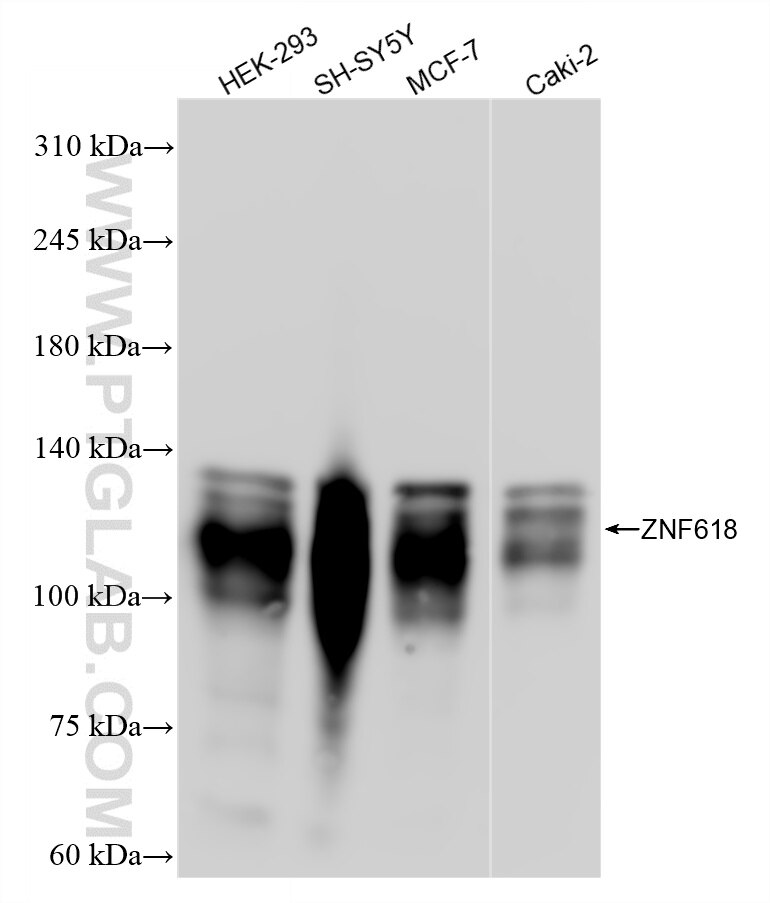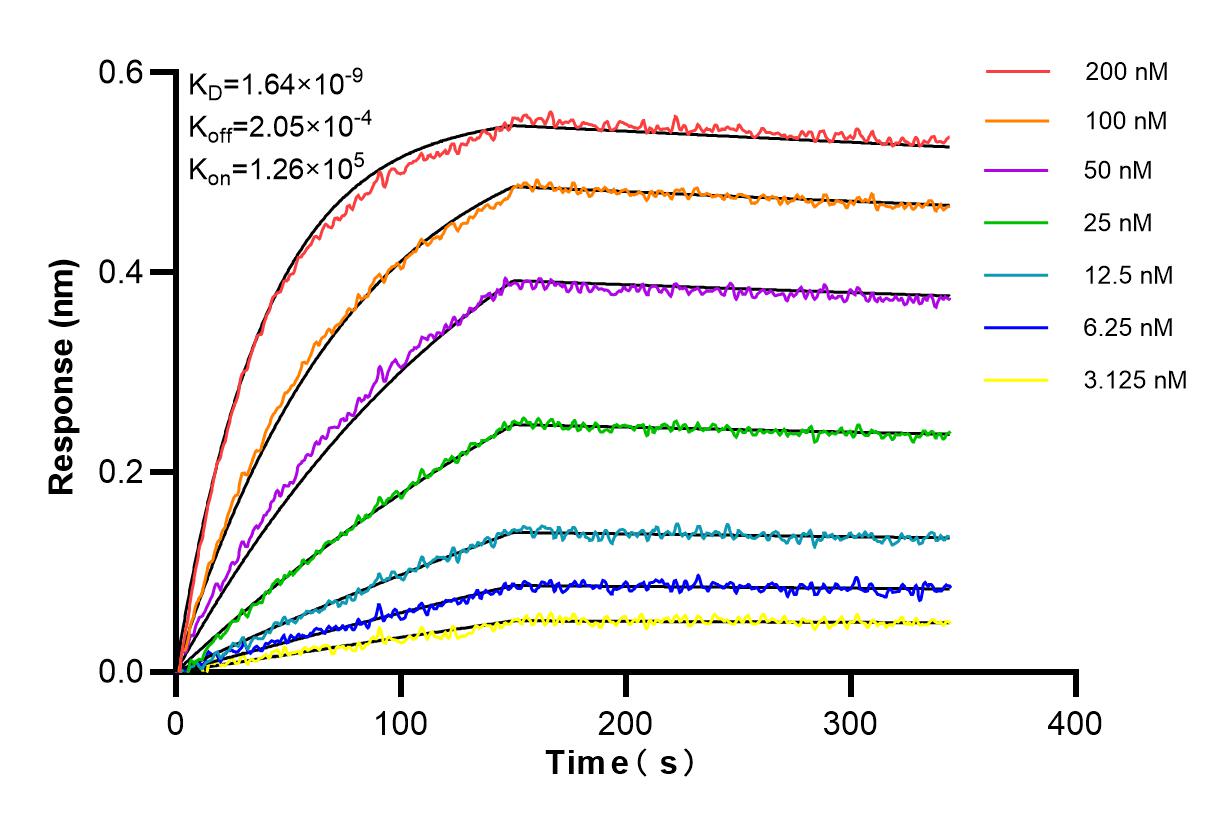Tested Applications
| Positive WB detected in | HEK-293 cells, SH-SY5Y cells, MCF-7 cells, Caki-2 cells |
Recommended dilution
| Application | Dilution |
|---|---|
| Western Blot (WB) | WB : 1:5000-1:50000 |
| It is recommended that this reagent should be titrated in each testing system to obtain optimal results. | |
| Sample-dependent, Check data in validation data gallery. | |
Product Information
84998-1-RR targets ZNF618 in WB, ELISA applications and shows reactivity with human samples.
| Tested Reactivity | human |
| Host / Isotype | Rabbit / IgG |
| Class | Recombinant |
| Type | Antibody |
| Immunogen | ZNF618 fusion protein Ag36487 Predict reactive species |
| Full Name | zinc finger protein 618 |
| Calculated Molecular Weight | 105kDa,954aa |
| Observed Molecular Weight | 110-130 kDa |
| GenBank Accession Number | NM_001318042.1 |
| Gene Symbol | ZNF618 |
| Gene ID (NCBI) | 114991 |
| Conjugate | Unconjugated |
| Form | Liquid |
| Purification Method | Protein A purification |
| UNIPROT ID | Q5T7W0 |
| Storage Buffer | PBS with 0.02% sodium azide and 50% glycerol , pH 7.3 |
| Storage Conditions | Store at -20°C. Stable for one year after shipment. Aliquoting is unnecessary for -20oC storage. 20ul sizes contain 0.1% BSA. |
Background Information
Zinc finger protein 618 (ZNF618) is a key protein associated with DNA methylation and acts as a specific 5hmC reader in vivo to regulate UHRF2 function by promoting UHRF2 chromatin localization. In addition, ZNF618 is not only associated with the induction, maintenance or progression of female breast cancer, but is also up-regulated in lung cancer cells.
Protocols
| Product Specific Protocols | |
|---|---|
| WB protocol for ZNF618 antibody 84998-1-RR | Download protocol |
| Standard Protocols | |
|---|---|
| Click here to view our Standard Protocols |





